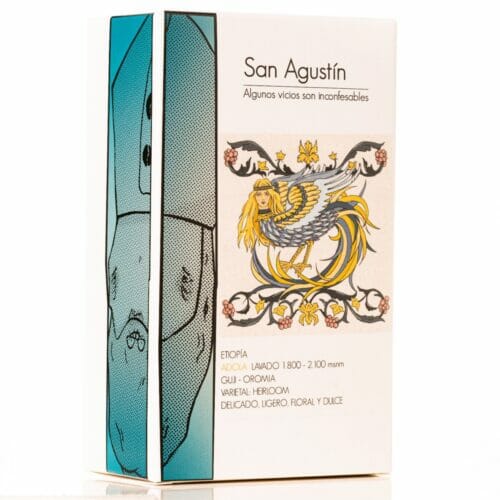Description
Adola
This coffee comes from Guji, located in southern Ethiopia in the Oromia region, near the border with Kenya. Uraga is one of the districts in this region. The overall quality of the coffees from this region is exceptional. As Ethiopia is the birthplace of coffee, there are thousands of different varieties that have naturally evolved over the years, each carrying very interesting properties that remain a mystery even today.
The volcanic soils in Guji are rich in minerals that are ideal for the demanding Arabica coffee plant. Traditionally, Guji's small farmers live in harmony with nature.
At an altitude of 1,750–2,300 m above sea level, the coffee cherries are left to ripen in the natural forests surrounding the farmers' land, where they are hand-picked and taken to the washing station.
Heleanna Georgalis has been leading the company since 2008. She is immersed in the third wave of coffee, personally concerned about the quality of the coffee she exports. She continues her father's legacy and claims to be passionate about this world, where she can experiment with processes and have fun checking the results. It's important to highlight that the uniqueness of Ethiopian coffees lies in the "non-genetic modification" of the coffee plants. In Ethiopia, there are thousands of unexplored varieties, and the known ones remain intact, and Heleanna emphasizes this every time she talks about the subject. Ethiopia is the birthplace of coffee; the varieties are specific to each region. Scientists have recognized 37 varieties, 34 of which are natural. We often find that Ethiopian coffee is of the Heirloom variety, which means that it is "ancient root." It does not define the variety itself, but rather is generic. The variety is named after the area in which it grows and where it has been growing for several years, and it should have the characteristic flavor of the area.


